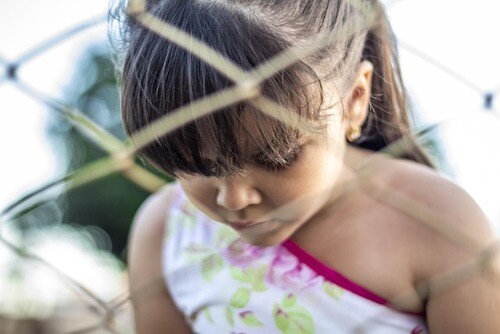Parenting a Child with Low Self-Esteem: Your Trusted Guide to Raising a More Confident Kid
If you’re here, chances are you're noticing that your child is struggling with confidence—and you’re wondering how to help them feel better about themselves. Parenting a child with low self-esteem isn’t easy.
Want to know how you can help? This guide will walk you through everything you need to know.

What is Low Self-Esteem in Kids?
Let’s start at the beginning.
Self-esteem is how a child views themselves—how much they believe they matter, their ability to handle life’s challenges, and how loved they feel. When kids have low self-esteem, they may:
- Constantly say “I can’t” or “I’m not good at anything”
- Avoid trying new things for fear of failure
- Compare themselves to others
- Struggle with friendships or social settings
- Blame themselves when things go wrong
It’s not “just a phase”
Low self-esteem isn’t just about a few bad days—it’s a pattern of thinking and feeling that can affect your child’s growth, relationships, and happiness. The sooner we notice the signs and act, the better.
Common Causes of Low Self-Esteem in Children
Understanding the “why” is key to offering support that actually helps. Here are some common causes:
- Criticism (even well-meaning): Kids internalize negative feedback deeply
- Bullying or peer rejection: Feeling left out or picked on chips away at self-worth
- Academic struggles: Constant comparison with “smarter” classmates can hurt
- High parental expectations: Perfectionism at home can feel like pressure
- Trauma or change: Divorce, moving, or illness may leave them feeling unsafe or unworthy
Parenting a child with low self-esteem often starts with recognizing the root. That’s half the battle won.
How to Know If Your Child Has Low Self-Esteem
Here are some red flags to watch for (don’t worry—recognizing them is step one!):
- Frequent negative self-talk: “I’m dumb” or “Nobody likes me”
- Avoiding challenges: They’d rather quit than try and fail
- Moodiness or withdrawal: Not wanting to talk or play
- Trouble accepting praise: They brush off compliments
- Seeking constant approval: “Was that okay?” after every action
Kids don’t always come out and say, “I feel worthless.” But their behavior will speak. And if you’re picking up on these signs, your instincts are probably right.
Actionable Advice: What You Can Do (Starting Today)
Now for the good stuff—real strategies you can start using right now. Parenting a child with low self-esteem doesn’t mean fixing them; it means walking alongside them, hand in hand.
1. Praise the Process, Not the Person
Instead of saying:
“You’re so smart.”
Try:
“You worked really hard on that, and it paid off!”
Why? Kids need to know effort matters more than natural ability. It builds resilience.
2. Let Them Struggle (a Little)
We know—it’s so tempting to step in. But allowing your child to face small challenges and work through them builds confidence.
Try saying:
“I know this is tricky, but I believe you can figure it out.”

3. Watch Your Own Inner Voice
Kids mirror what they hear. If they hear you saying “Ugh, I’m so stupid,” they learn that it’s okay to talk to themselves like that, too.
Let them hear you say:
“That didn’t go how I planned, but I’ll try again tomorrow.”
4. Set Realistic Goals
Help your child choose one small, achievable goal at a time:
- Finish a puzzle
- Read a chapter
- Make a new friend at school
Celebrate every single win.
5. Teach Emotional Vocabulary
Kids with low self-esteem often don’t have the words to express what they’re feeling.
Try emotion cards or a feelings chart, and have regular “feelings check-ins” at bedtime or dinner.
Emotional Support: How to Show Up Without Shaming
This is HUGE. Parenting a child with low self-esteem means creating a space where they feel safe to fail, to be imperfect, and to be fully themselves.
Here’s how to do that:
✔️ Validate, Don’t Dismiss
Instead of:
“Oh, that’s nothing to cry about.”
Say:
“I see you’re upset. Want to talk about it?”
It tells them their feelings matter.
✔️ Separate the Deed from the Doer
Bad behavior ≠ bad child.
Say:
“That choice wasn’t okay, but I still love you.”
This protects their self-worth even when discipline is needed.
✔️ Be Their Anchor
Your child needs to know that your love is not conditional on performance, grades, or behavior.
Reinforce with:
“There is nothing you could ever do that would make me stop loving you.”
Seriously, say it. Often. Loudly.
Resources Worth Sharing (Because You're Not Alone)
Looking for more? Here are some lightly commercial, highly supportive resources you might find helpful:
Books:
- Unstoppable Me! by Dr. Wayne Dyer
Online Tools:
- Kids’ self-esteem journals or worksheets (try Pinterest or Teachers Pay Teachers)
Therapy:
- Check local child therapists or school counselors for evaluation or support
Wrap-Up: You’ve Got This (Really)

Parenting a child with low self-esteem is a journey. Some days, you’ll feel like you’re making progress. Other days? Not so much. And that’s okay.
The fact that you’re reading this means you care—and that already makes you an incredible parent.
Here’s your quick recap checklist:
- Spot the signs early
- Praise effort, not perfection
- Let them try (and fail) safely
- Model self-compassion
- Provide emotional safety and steady love
You’re not trying to perfect your child—you’re helping them discover how worthy they already are.
“Parenting a child with low self-esteem” isn’t about fixing them—it’s about seeing them, hearing them, and walking alongside them until they can stand tall on their own. ✨





















New! Comments
Have your say about what you just read! Leave me a comment in the box below.